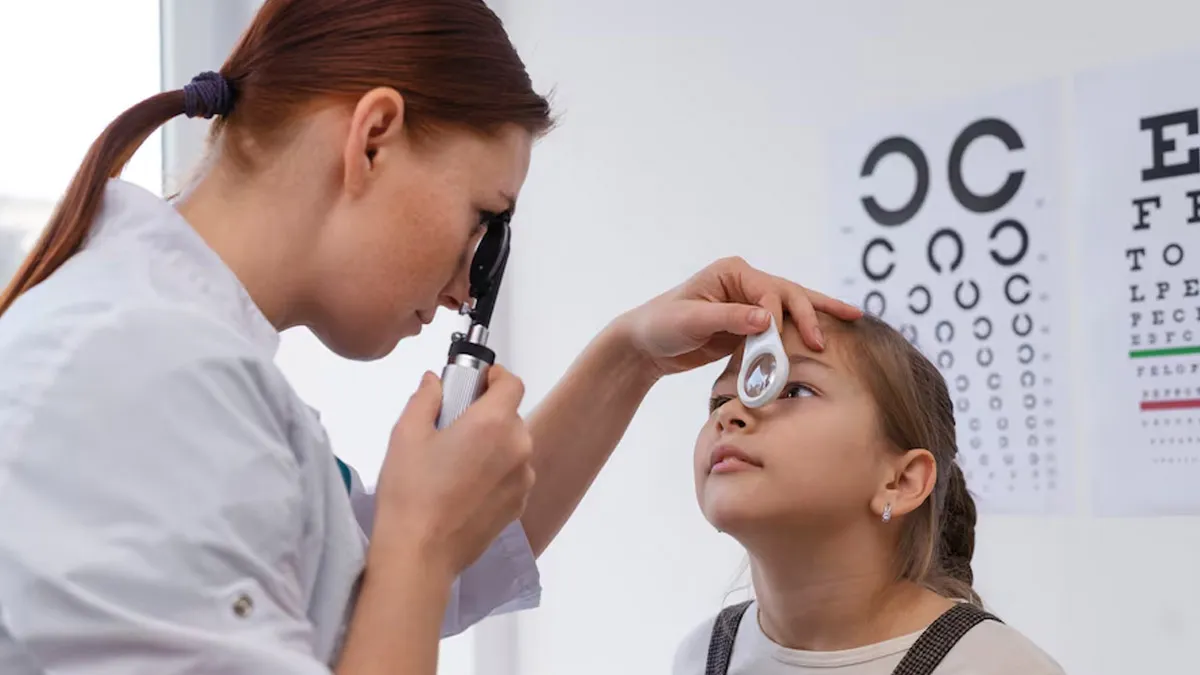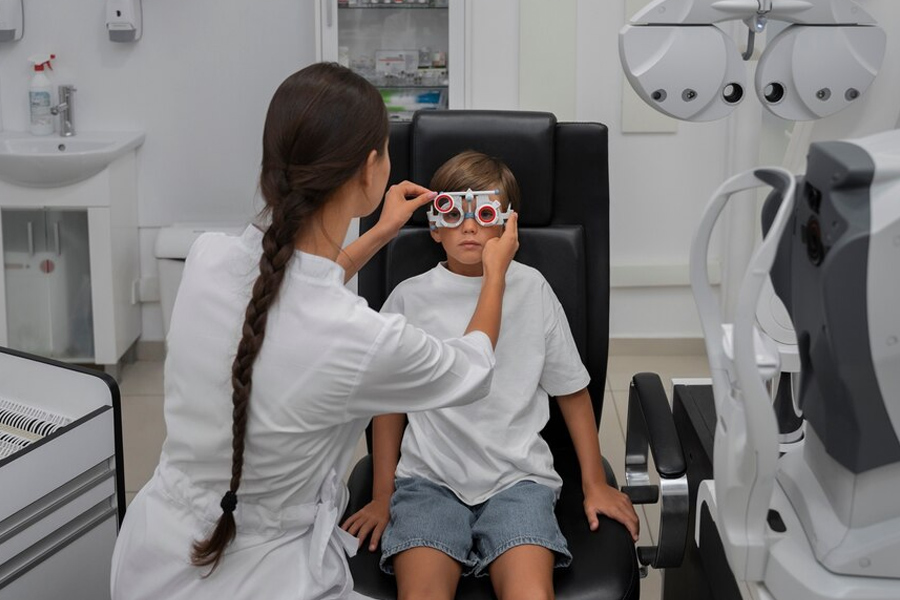
We often associate eye problems with old age, which is understandable given that age-related changes can affect vision. However, good eye health is essential for everyone, regardless of age, as eye issues can develop at any stage of life—even in young children. Early childhood eye conditions, such as myopia, amblyopia (lazy eye), and strabismus (crossed eyes), can impact development, learning, and overall quality of life if left unaddressed. And the primary step to it is early eye screening.
Table of Content:-
"Early eye exams are crucial for identifying and treating vision issues that can interfere with learning and development," Dr Aditi Sapovadia, Paediatric Ophthalmologist, Squint and Cataract Consultant at Netradeep Maxivision Eye Hospital, Rajkot, told the OnlyMyHealth team. She added, "Good vision supports literacy, motor skills, and social interaction, which is why early detection and treatment can prevent long-term visual impairment, making these exams vital for setting up children for success in school and daily life."
Therefore, in this article, we discuss the right time to get your child's eyes examined and signs for immediate attention.
Also Read: What Happens When You're Supposed To Wear Eye Glasses But Don't
At What Age Should A Child Have A Comprehensive Eye Exam?

“A child should ideally have their first comprehensive eye exam around age 3-5, just before starting school,” recommended Dr Sapovadia.
She added that early exams are essential for detecting common issues like nearsightedness, farsightedness, or lazy eye (amblyopia), which can impact learning and development if left untreated.
According to a study published in Ophthalmic Epidemiology, paediatric eye diseases, such as strabismus and amblyopia, are common and can significantly impact a child's quality of life. In the United States, studies have shown that approximately 2-5% of children have strabismus, while 0.8-1.8% have amblyopia. In India, the prevalence of paediatric eye diseases varies. A study in Assam found that myopia was the most common refractive error, affecting 19% of children, followed by astigmatism (15.5%), and amblyopia (2.8%). Other common conditions include allergic conjunctivitis (7.64%) and strabismus (4.95%).
Signs Your Child Needs An Immediate Eye Exam
-1731496493085.jpg)
Here are some of the common signs that may indicate the need for an early eye exam:
- Frequent squeezing, blinking, or rubbing of the eyes
- Difficulty focusing on objects or trouble following objects visually
- One eye turning inward or outward (strabismus)
- Head tilting to see better or complaints of blurry or double vision
- Frequent headaches or eye strain These behaviours may suggest a vision problem that requires early intervention.
- White reflex in eyes as a sign for early eye examination.
- if the child is preterm or has any complications or infection during pregnancy.
Also Read: A Retinal Scan Can Predict Risk Of Getting A Heart Attack
What Parents Can Expect During Their Child’s First Eye Exam
-1731496504155.jpg)
Parents can get anxious during their child’s first eye exam. To ease your nervousness, here’s what you can expect, as per our expert:
- Check visual acuity using age-appropriate tests to assess how well the child sees.
- Examine eye alignment and movement to check for conditions like strabismus.
- Use tools like a retinoscope to assess how light enters the eye and identify refractive errors.
- Dilation may be used to get a better view of the retina and optic nerve.
To prepare, parents can explain the exam in a simple, reassuring way to make the child comfortable, bringing along a favourite toy or snack to help them feel at ease.
Bottomline
For parents wondering how often their children should have eye screenings, the number of times largely depends on whether any issues have been detected. If no concerns are found during the initial exam, a general guideline is for children to have eye exams every 1-2 years, said Dr Sapovadia, concluding however that for children with identified risk factors or vision issues, an eye doctor may recommend more frequent visits to monitor and manage any changes in their eyesight.
Also watch this video
How we keep this article up to date:
We work with experts and keep a close eye on the latest in health and wellness. Whenever there is a new research or helpful information, we update our articles with accurate and useful advice.
Current Version
